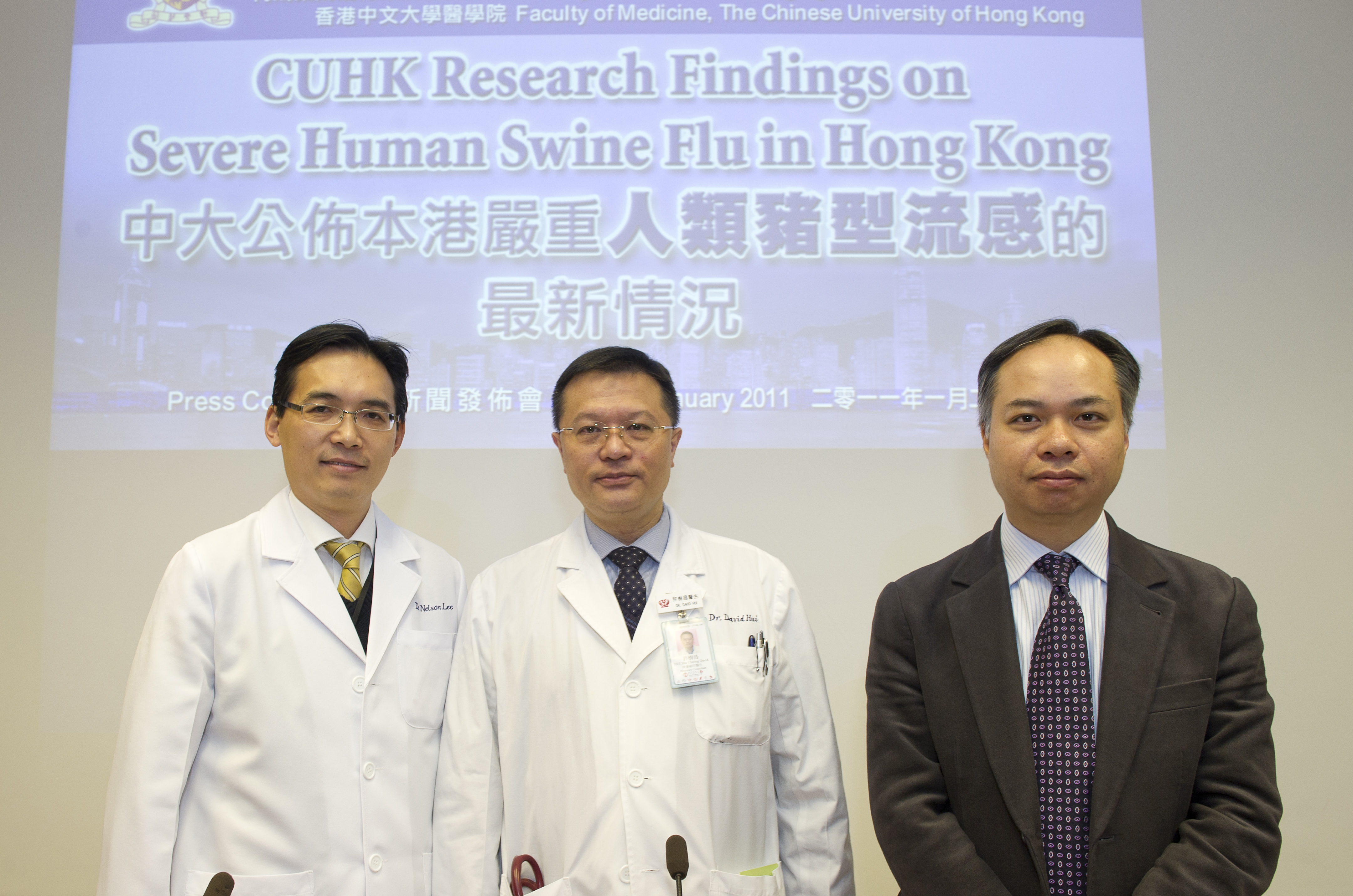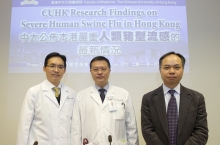CUHK
News Centre
CUHK Research Findings on Severe Human Swine Flu in Hong Kong
Hong Kong is now at the seasonal peak of influenza. Current cases are mainly caused by the swine flu H1N1 virus that caused the pandemic in 2009. The Division of Infectious Diseases of the Department of Medicine and Therapeutics, the Department of Microbiology, and the Stanley Ho Centre for Emerging Infectious Diseases at The Chinese University of Hong Kong (CUHK) jointly conducted a study during 2009-2010 on 382 patients hospitalized for human swine influenza infection in the New Territories East Cluster (NTEC). Their clinical profiles, treatment responses and virus characteristics were analyzed.
The study on the clinical profiles and treatment responses showed that 70% of hospitalized patients developed severe complications with 9-13% in ‘critical’ conditions, and many of them were young, healthy adults (an average age of 47±20 years; male 45% and female 55%). The hallmark of disease was diffuse pneumonitis caused by high-level viral replication in the lungs and with excessive inflammatory response. Testing on upper respiratory tract secretion alone may result in misdiagnosis in some cases. The conventional 5-day course of antiviral treatment was inadequate in treating severe disease.
Mutant virus was detected in both the first (July-October 2009) and second peak periods (February-March 2010) in Hong Kong. The mutant virus replicated more efficiently in the lower respiratory tract and caused severe pneumonia in all the infected patients. Although the mutant virus replicated less efficiently in the upper respiratory tract and therefore was predicted to be less transmissible, patients infected with the mutant virus showed poor response to antiviral treatment. CUHK suggests performing sequencing of the virus genomeand closely monitoring the occurrence of this mutant virus among severe cases during the current seasonal peak of influenza.
The research findings have enhanced researchers’ understanding on human swine flu, helping them to develop more effective treatment for severe cases. Influenza can cause severe complications even among healthy individuals, therefore the general public is advised to receive vaccination every year. To allow sufficient time for the body to develop immunity, the best time for influenza vaccination is from November to December.
(from left) Professor Nelson Lai Shun LEE, Head of Division of Infectious Diseases, Department of Medicine & Therapeutics, CUHK; Professor David Shu Cheong HUI, Head of Division of Respiratory Medicine, Department of Medicine & Therapeutics, CUHK and Professor Paul Kay Sheung CHAN, Professor, Department of Microbiology, CUHK



